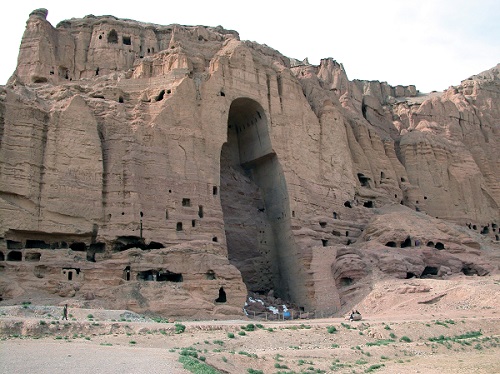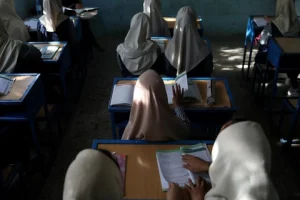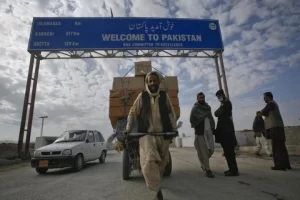The destruction of the Bamiyan Buddha statues destroyed in 2001 is shaping next week's debate on Afghanistan's human and cultural rights situation, threatened by Taliban's return to power in Kabul.
Eighty-nine countries, including India have requested the special session to be hosted On August 24 by the United Nations Human Rights Council (UNHRC).
Already a UN human rights expert had warned of a "cultural disaster" in Afghanistan after Kabul fell to Taliban forces, and urged states to provide urgent assistance to human rights defenders, including those working on women's and cultural rights, as well as artists, trying to flee the country.
"It is deplorable that the world has abandoned Afghanistan to a fundamentalist group like the Taliban whose catastrophic human rights record, including practice of gender apartheid, use of cruel punishments and systematic destruction of cultural heritage, when in power, is well documented," said Karima Bennoune, the UN Special Rapporteur in the field of cultural rights.
"Protecting Afghan lives and rights must be the top priority. Efforts must also be made to ensure the safety of all forms of culture and cultural heritage which are essential for enjoyment of those rights, and to protect those who defend it on the frontlines. All governments and the international community must act with urgency today to prevent a massive human rights and cultural disaster in Afghanistan," she had added.
Bennoune recalled that the Taliban's own cultural officials in 2001 had attacked not only the Bamiyan Buddhas but also the country's national museum, destroying thousands of the most important pieces, as well as banning many cultural practices, including music.
"Afghan cultural rights defenders have worked tirelessly and at great risk since then to reconstruct and protect this heritage, as well as to create new culture. Afghan cultures are rich, dynamic and syncretic and entirely at odds with the harsh worldview of the Taliban," she said.
In order for a special session to be convened, the support of one-third of the 47 members of the Council – 16 or more – is required. The request was supported thus far by the following states members of the Council (29): Argentina, Austria, Bahrain, Bangladesh, Bulgaria, Burkina Faso, Cameroon, Cote d'Ivoire, Czechia, Denmark, France, Gabon, Germany, India, Indonesia, Italy, Japan, Libya, Mauritania, Mexico, Netherlands, Pakistan, Poland, Senegal, Somalia, Sudan, Togo, United Kingdom, and Uzbekistan.
The request was also supported thus far by the following observer States (60): Afghanistan, Albania, Algeria, Azerbaijan, Belgium, Benin, Brunei Darussalam, Chad, Comoros, Croatia, Cyprus, Djibouti, Egypt, Estonia, Finland, Gambia, Greece, Guinea, Guinea-Bissau, Guyana, Hungary, Iran, Iraq, Ireland, Jordan, Kazakhstan, Kuwait, Kyrgyzstan, Latvia, Lebanon, Lithuania, Luxembourg, Malaysia, Maldives, Mali, Malta, Morocco, Mozambique, Niger, Nigeria, Oman, Portugal, Qatar, Romania, Saudi Arabia, Sierra Leone, Slovakia, Slovenia, Spain, Suriname, Sweden, Syria, Tajikistan, Tunisia, Turkey, Turkmenistan, Uganda, United Arab Emirates, Yemen and the State of Palestine.
The special session will take place in a hybrid format due to Covid-19 measures and the majority of interventions will be delivered online.
Also Read: Will Taliban 2.0 fulfill its promise of an inclusive government?




















